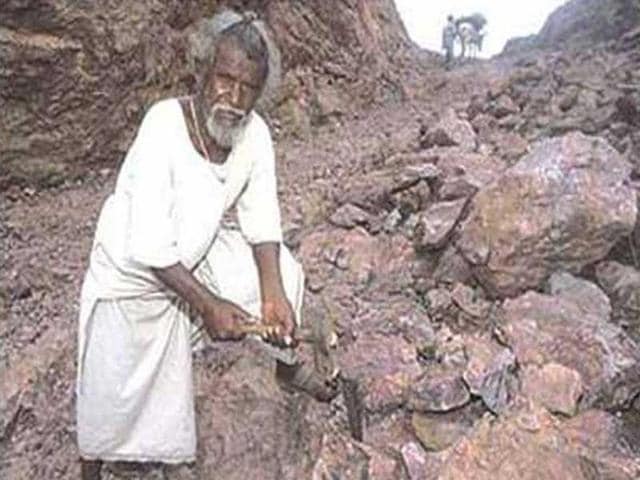Things are not alright in the Mountain Man’s part of Bihar
In 2005, Bihar chief minister Nitish Kumar offered his chair to Dasrath Manjhi, who had earned the Mountain Man moniker for cutting a road through a hill that reduced the distance from his village Gehlaur in Gaya district to nearest town Wazirganj by 32 km.
In 2005, Bihar chief minister Nitish Kumar offered his chair to Dasrath Manjhi, who had earned the Mountain Man moniker for cutting a road through a hill that reduced the distance from his village Gehlaur in Gaya district to nearest town Wazirganj by 32 km.

It was a rare honour for a mahadalit, the social group Manjhi belongs to.
What followed was beyond the imagination of many in the area. Manjhi was gifted a plot of land that he donated for a hospital. His village, renamed Dasrathnagar, also got a school, electricity, water tank and paved road.
But every village does not have a Mountain Man. Electricity has not reached Tithmo, Karzani and Dhusre, three mahadalit villages close by unlike those dominated by those higher in the social ladder – Brahmins, Rajputs and Yadavs.
The case is similar in Ramnagar, a village of Musahars 3 km from Dasrathnagar. Musahars, occupying the lowest strata in India’s inflexible caste hierarchy, make up 5.5% of Bihar’s population and less than 10% of them are illiterate.
Both Nitish Kumar and former chief minister Jeetan Ram Manjhi, a Musahar by caste, are banking on the mahadalists who – along with the dalits – constitute 16% of the population and are a potent voting force.
None of the 400 families in Ramnagar has received Indira Awas Yojna benefits. Their weak houses cannot withstand rain, forcing them to take shelter in school buildings elsewhere during the monsoon.
When monsoon fails, such as this year, the villagers virtually starve because of crop failure. And the youth migrate to urban centres to work as labourers.
“Had the government given us electricity, we could have used tube wells to save our crops. We are thinking of migrating too,” Shankar Manjhi, 30, says.
The Ramnagar residents rue the absence of a school too. Their children go to a school at Karzani yonder, but are often victims of prejudice attached to their castes.
If that were not enough, the mahadalits are prevented from casting their votes. “The upper caste people invariably block our path to the polling booth,” Joginder Manjhi, another marginal farmer, says.
“The present government favoured the upper castes. We hope the next would be different,” a young man says. He adds that people in the area could give Jeetan Ram Manjhi – removed by Nitish Kumar after a few months as chief minister – a chance.
Get Current Updates on India News, Lok Sabha Election 2024 Live, Karnataka Puc Result Live Updates, Election 2024 along with Latest News and Top Headlines from India and around the world.




